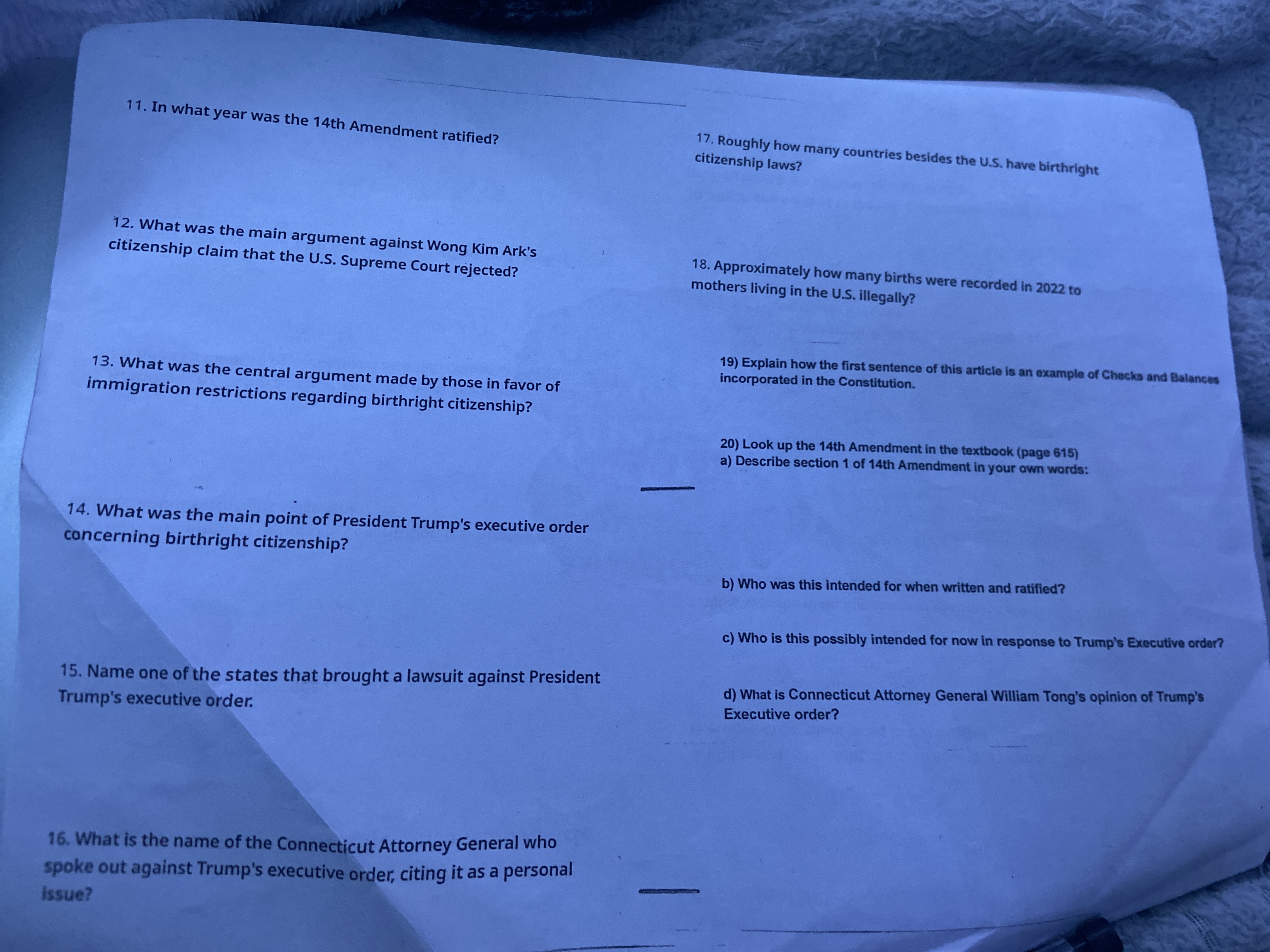What was the central argument made by those in favor of immigration restrictions regarding birthright citizenship? What was the main argument against Wong Kim Ark's citizenship cla... What was the central argument made by those in favor of immigration restrictions regarding birthright citizenship? What was the main argument against Wong Kim Ark's citizenship claim that the U.S. Supreme Court rejected? In what year was the 14th Amendment ratified? Name one of the states that brought a lawsuit against President Trump's executive order. What is the name of the Connecticut Attorney General who spoke out against Trump's executive order? Approximately how many countries besides the U.S. have birthright citizenship laws?

Understand the Problem
The questions pertain to the 14th Amendment and various aspects of birthright citizenship, particularly in relation to President Trump's executive order. They seek information regarding arguments for and against the executive order, legal actions taken, and historical context.
Answer
1868; Washington; William Tong; ~30 countries.
Those in favor of immigration restrictions argued that birthright citizenship should not be extended to children of foreign nationals, especially if the parents are not legally present. The argument against Wong Kim Ark's citizenship claim that was rejected by the U.S. Supreme Court centered on the idea that children born to foreign nationals did not fall under the jurisdiction of the U.S. However, the Court ruled that the 14th Amendment granted citizenship to all persons born in the U.S. The 14th Amendment was ratified in 1868. One state that brought a lawsuit against President Trump's executive order was Washington. The Connecticut Attorney General who spoke out was William Tong. Approximately 30 countries, besides the U.S., have birthright citizenship laws.
Answer for screen readers
Those in favor of immigration restrictions argued that birthright citizenship should not be extended to children of foreign nationals, especially if the parents are not legally present. The argument against Wong Kim Ark's citizenship claim that was rejected by the U.S. Supreme Court centered on the idea that children born to foreign nationals did not fall under the jurisdiction of the U.S. However, the Court ruled that the 14th Amendment granted citizenship to all persons born in the U.S. The 14th Amendment was ratified in 1868. One state that brought a lawsuit against President Trump's executive order was Washington. The Connecticut Attorney General who spoke out was William Tong. Approximately 30 countries, besides the U.S., have birthright citizenship laws.
More Information
The argument for restricting birthright citizenship was tied to national identity concerns, while the Supreme Court's rejection of this argument affirmed the principle of jus soli—the right of soil.
Tips
A common mistake is confusing the legal residency or status of parents with the citizenship status of a child born in the U.S. under the 14th Amendment.
Sources
- United States v. Wong Kim Ark - Wikipedia - en.wikipedia.org
- Birthright Citizenship - American Immigration Council - americanimmigrationcouncil.org
AI-generated content may contain errors. Please verify critical information